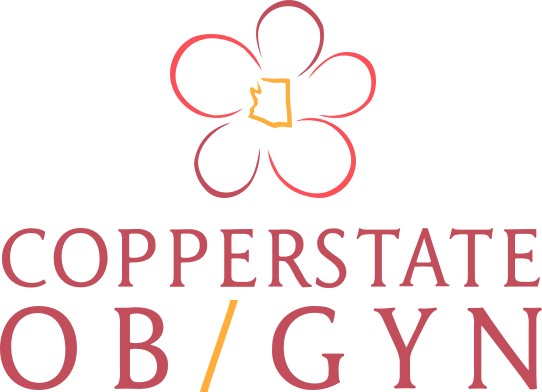Your body is miraculous. It’s gone through physical and hormonal changes to bring life into the world and will continue to provide for your baby. While postpartum hormone changes are normal and expected, sometimes they can cause unwanted symptoms such as the “baby blues” or postpartum depression. Luckily, there are ways that you can help your body adjust your hormones back after giving birth, to more stable levels.
Postpartum Hormone Changes
Hormones Right After Giving Birth
Congratulations, new mama! When you finish the delivery, you’ll have a euphoric “high” when you meet your new baby for the first time. Your oxytocin levels surge postpartum to help you feel that strong, motherly instinct and to compensate for the sudden drop in progesterone and estrogen. The prolactin hormone will increase as well to encourage milk production.
These hormone changes will reflect good feelings, but it’s perfectly normal to experience some mood swings right after childbirth as well. As the oxytocin starts to wear away, you may start to notice feelings of anxiety and depression. This may cause you to think you have a postpartum hormone imbalance, but this is actually a very normal symptom.
Hormones 3-6 Weeks Postpartum
You’re running mostly on adrenaline and lack of sleep the first 3-6 weeks after the baby arrives. Your hormones will slowly start to stabilize as you get used to your new schedule. Your body is likely healing and you can move around easier.
You may begin to see symptoms of postpartum depression during this stage. Postpartum depression is longer lasting and more severe than the “baby blues.” Baby blues symptoms typically last for about 5 days to two weeks after the baby is born, and include:
- Mood swings
- Anxiety
- Trouble Sleeping
- Irritability
Postpartum depression feels different because the symptoms are more intense and last longer. Symptoms can appear in the first few weeks after birth or can take up to a year to manifest. They may even affect your ability to take care of your baby. Postpartum depression symptoms include:
- Difficulty bonding with your baby
- Excessive crying (from you, not the baby)
- Overwhelming fatigue
- Hopelessness
- Severe anxiety and panic attacks
- Thoughts of self-harm or harming your baby
- Thoughts of suicide
Hormones 3 Months Postpartum
Once you reach the 3-month stage, your hormones post pregnancy are now beginning to return to pre-pregnancy levels, but due to the many stressors of having a new baby, you may experience an increase in cortisol – the stress hormone. This is often exacerbated by a lack of sleep. Lack of sleep can contribute to more hormone fluctuations, including decreased levels of serotonin and melatonin. This may negatively impact your mood.
Hormones 6 Months Postpartum
Your hormones after giving birth have typically returned to baseline levels around the 6-month mark. Women also often have their first regular menstruation around this time. Estrogen and progesterone return to normal levels, making it possible to have a normal cycle.
Prolactin, the breast milk production hormone, starts to decrease as your baby weans. Even if you continue to breastfeed, your baby will be introduced to solids and won’t need as much breastmilk. However, if you’re continuing to exclusively breastfeed, prolactin will continue to stay high and can keep your estrogen levels suppressed.
How to Balance Postpartum Hormones
Don’t feel doomed, as there are ways you can help your body naturally manage these postpartum hormone changes.
Talk to Your Doctor – Let your doctor rule out other medical causes for any hormonal imbalances. You could have an issue with your thyroid or something more serious, that may need to be treated.
Avoid Processed Foods – Most processed foods are made up of simple carbohydrates that are stored as fats. These can cause blood sugar dysregulation and affect your hormones.
Eat Proteins – Proteins are necessary for your body to produce and regulate hormones. Try including more proteins and lean meats.
Eat Fiber – Your body releases estrogen through bowel movements, so constipation can cause excess estrogen to be absorbed back into the bloodstream. Eat enough fiber to help you go.
Get Enough Iron – Low iron levels can make postpartum depression symptoms worse. Eat iron-rich foods such as beans, egg yolks, and leafy greens to fight against anemia and fatigue.
Eat Healthy Fats – Healthy fats are essential for proper hormone regulation because they help them work and move properly through the body. Try eating avocado, almonds, seeds, and wild-caught salmon.
Eat Nutrient Rich Foods – Nutrients increase immunity as well as help your body function properly. Vegetables and fruits contain vitamins and minerals that will help your body regulate itself.
Stay Hydrated – Drinking water and eating fruits, vegetables, soups, and smoothies will fight irritability, depression, and fatigue. Avoid coffee and sodas.
Take a Postnatal Vitamin – Despite your best efforts, you may not get enough nutrients in your diet. Take a postnatal vitamin to protect yourself against any areas you may be lacking in your diet.
Exercise – Exercise promotes stress relief and hormonal balance. Endorphins released with exercise will help your mood stabilize as well.
Your body worked hard to bring a baby into the world and will continue to work hard after you have your baby. By being more mindful of your diet and taking care of your body, you can help your postpartum hormones adjust back to where they were prior to giving birth.
Are you looking for an OB/Gyn you can trust? Do you live in the Tucson area? Book an appointment today!
Sources:
- https://www.parents.com/pregnancy/my-body/postpartum/postpartum-hormone-changes/
- https://www.healthline.com/health/postpartum-recovery-timeline#week-2
- https://www.copperstateobgyn.com/postpartum-depression/
- https://www.imperfectlyperfectmama.com/balance-postpartum-hormones-naturally/
Originally published June 14th, 2021.

